Body Corporate Disputes in Queensland: What You Need to Know
Owning property in a body corporate scheme offers shared perks—but also shared headaches. Disputes over noise, pets, and by-laws can escalate quickly, and recent changes to Queensland’s body corporate laws have made navigating them even more complex. Understanding your rights and resolution options is crucial for owners, committees, and managers alike. Knowing how to handle conflicts efficiently can save you time, money, and stress.
Understanding Body Corporate Disputes in Queensland
Body corporate disputes in Queensland arise from the unique dynamics of communal living. When multiple owners share responsibility for common property under a community title scheme, disagreements inevitably occur. These disputes often stem from:
- different interpretations of by-laws
- financial decisions
- maintenance responsibilities
- behavioural issues among residents
The Body Corporate and Community Management Act 1997 (BCCM Act) provides the primary legislative framework governing these arrangements. This legislation establishes the rights and responsibilities of lot owners, outlines dispute resolution procedures, and sets parameters for body corporate operations. Recent amendments to the BCCM Act, effective May 1, 2024, have significantly impacted key areas, including:
- pet ownership
- smoking regulations
- scheme termination
- vehicle management
- administrative processes
The Evolving Nature of Body Corporate Conflicts
As Queenslanders increasingly embrace apartment living, body corporate disputes have evolved alongside changing lifestyle expectations and property development trends.
- Remote work has intensified noise complaints and disputes over common area usage.
- Short-term accommodation platforms have created tension between investor-owners and resident-owners.
- Power imbalances exist between lot owners, committees, and building managers, complicating conflict resolution.
For instance, a lot owner may frequently receive noise complaints from their neighbours because of the owner’s daily activities, such as conducting virtual meetings from home. The lot owner may argue that their activities are reasonable while their neighbours in the building find the noise disruptive. If the committee is slow to intervene or unclear about enforcement powers, tensions escalate, leading to formal disputes.
Common Body Corporate Disputes and Their Causes
By-law Compliance and Lifestyle Conflicts
- Noise Complaints: Loud music, parties, domestic activities, and arguments amplified by close unit proximity.
- Pet Disputes: Often stem from noise complaints, property damage, or concerns over pet behaviour. Some owners believe their pets should be allowed freely, while others worry about allergies, safety, or disruptions. However, amendments to the BCCM Act in 2024 prevent outright bans on pets and require bodies corporate to provide reasonable grounds for refusing pet ownership requests. Bodies corporate must respond to requests within 21 days, or approval is automatic
- Smoking Issues: Typically caused by smoke drift affecting neighbouring units or common areas. Residents may argue for their right to smoke on private balconies, while others claim it impacts their health and enjoyment of their property. 2024 updates allow smoking bans in common areas and classify persistent smoke drift (including from vapes) as a nuisance.
- Parking Violations: Frequent conflicts in complexes with limited spaces; 2024 amendments clarify towing and penalty enforcement.
- Management Conflicts: Disputes over caretaker performance, committee governance, and decision-making authority.
- Financial Disagreements: Tensions over levies, special contributions, and inadequate sinking funds for maintenance.
- Maintenance & Repairs: Conflicts over responsibility for common area upkeep, water leaks, and building defects.
Management and Governance Issues
- Owner vs. Manager Disputes: Claims of poor performance, overstepping authority, or failing contractual obligations.
- Caretaker Disputes: Include disputes over the scope of duties, excessive fees, or claims of negligence. 2024 reforms now provide a clearer framework for terminating caretakers in cases of misconduct, requiring remedial action notices and committee resolutions.
- Committee Governance Conflicts: Procedural irregularities, allegations of favouritism, and communication breakdowns can hinder management.
For instance, a body corporate committee that fails to call an annual general meeting can leave financial decisions and maintenance approvals in limbo. Lot owners can become frustrated as essential repairs go unaddressed, leading to formal complaints and legal intervention.
Financial Conflicts
- Levy and Contribution Disputes: Differing perspectives on necessary versus discretionary spending.
- Special Levies: Controversy over unexpected financial contributions for urgent maintenance.
- Inadequate Sinking Funds: Aging properties facing major repairs often create funding shortfalls, disproportionately burdening current owners.
An example could involve a body corporate that discovers major structural issues in the building requiring urgent repairs. With insufficient sinking fund reserves, the committee votes to impose a special levy. Some owners agree, understanding the necessity, while others refuse, arguing financial hardship. The ensuing dispute may lead to legal action or mediation to reach a resolution.
Maintenance and Repair Responsibilities
- Responsibility Disputes: Determining whether owners, the body corporate, or third parties must handle repairs.
- Water Leak Conflicts: Multiple units affected by damage, leading to disagreements over liability.
- Building Defects: New developments frequently face disputes over builder liability, warranties, and rectification responsibilities.
The Queensland Resolution Framework
Queensland has developed a structured approach to resolving body corporate disputes that emphasises graduated escalation and cost-effective processes.
Self-Resolution and Internal Processes
The journey begins with self-resolution attempts, where parties communicate directly to address concerns. The Office of the Commissioner for Body Corporate and Community Management (OCBCCM) requires evidence of these efforts before accepting formal applications.
Effective self-resolution might involve direct communication with the other owner, written correspondence to the committee, or proposing motions at general meetings. Though not formalised, these early efforts often resolve disputes before they escalate.
Conciliation Through the Commissioner's Office
When self-resolution proves ineffective, conciliation represents the next step. An independent conciliator from the Department of Justice and Attorney-General facilitates discussions seeking mutually agreeable solutions. Application for this service costs $110.30 (as of March 2024) and provides an opportunity for structured negotiation.
Conciliation works best when both parties demonstrate willingness to compromise. It proves less effective for matters requiring urgent interim orders or questions about meeting resolution validity.
Adjudication for Binding Decisions
Unresolved disputes may progress to adjudication, where parties submit written arguments for consideration by a qualified adjudicator. Unlike conciliation, adjudication produces legally enforceable orders based on legislation and precedent.
The process requires no physical attendance, with decisions made purely on submitted documentation. The application fee for adjudication is $110.30 for a final order, or $231.90 for both an interim and final order, making it an affordable option for most property owners.
QCAT for Complex Disputes
The Queensland Civil and Administrative Tribunal (QCAT) handles specific categories of body corporate disputes, including complex cases involving building managers, lot entitlement adjustments, and appeals against adjudicator decisions.
The QCAT process typically involves application filing, evidence submission, potential hearings, and binding decisions. While more costly and time-consuming, QCAT provides necessary authority for complex contractual and legal matters.
Case Example
In Body Corporate for the Lakes-Cairns CTS 28090 v Sunshine Group Australia Pty Ltd [2023] QCAT 39, an important decision was made about who handles complex body corporate disputes in Queensland.
Key Facts and Context
- The dispute centred on a caretaking agreement from 2000 for a large complex with 18 subsidiary bodies corporate
- Management fees had risen dramatically from $98,275 to approximately $876,000 yearly by 2021
- The body corporate initially sought a review of fees, then changed strategy to argue the entire agreement was void
- The agreement contained vague fee review factors rather than a clear formula, contributing to the dispute
- Over 20 years, more than $6.7 million had been paid to the caretaker
QCAT's Decision
- The body corporate could amend their application to argue the agreement was void (but must pay costs)
- The case would remain with QCAT rather than being transferred to the Supreme Court
- QCAT has jurisdiction to determine if the agreement complied with body corporate legislation
Why This Matters
This ruling reinforces QCAT's broad authority under the Body Corporate and Community Management Act to resolve "complex disputes," including determining if agreements are valid or void. It means Queensland unit owners can address these issues without the expense of Supreme Court proceedings.
Practical Takeaways
Bodies corporate should ensure agreements clearly state how fees will be calculated
- QCAT is the appropriate forum for body corporate disputes, even for complex legal questions
- Technical jurisdictional arguments rarely succeed in moving cases to higher courts
- Long-term agreements need careful drafting to prevent fee escalation issues
The decision provides certainty about dispute resolution pathways for Queensland's growing strata communities.
Frequently Asked Questions About Bodies Corporate and Disputes
How do companies and bodies corporate differ legally in Queensland?
A company is a business entity formed under the Corporations Act 2001 with shareholders and directors. A body corporate forms automatically when land is subdivided under Queensland's BCCM Act, comprising all lot owners and existing to manage common property rather than generate profits.
What authority do bodies corporate have over parking regulations in Queensland complexes?
Bodies corporate can establish parking rules through by-laws with special resolution approval (66.67%). However, these rules must comply with the BCCM Act, be reasonable, and not discriminate unfairly. The 2024 amendments confirmed powers to tow vehicles violating these by-laws.
Is a Body Corporate permitted to disclose levy payment information to all residents?
No, bodies corporate should not publicly disclose individual levy defaults, as this raises privacy concerns. While committees may pursue unpaid levies through formal processes, this information should remain confidential. Inappropriate disclosure could warrant a complaint to the OCBCCM.
What steps should I take if I have an issue with my body corporate management company?
Document the issues, approach the manager directly, then escalate to senior management if needed. Involve your committee through formal correspondence. Consider proposing a motion at the next general meeting. For persistent issues, use the OCBCCM's formal dispute resolution processes, starting with conciliation.
Conclusion
Body corporate disputes in Queensland reflect the inevitable tensions of shared property arrangements. The state's multi-tiered resolution system offers accessible pathways for addressing these conflicts, from self-resolution to tribunal proceedings. Recent legislative reforms have addressed longstanding flashpoints regarding pets, smoking, and scheme termination, potentially reducing certain categories of disputes while creating adaptation challenges.
Tailored Solutions to Resolve Your Dispute
Our experienced
Gold Coast Commercial Litigation Lawyers specialise in navigating Queensland's body corporate disputes. We provide comprehensive legal support from initial strategy through QCAT representation. With solicitors who stay current on legislative changes and precedents, we offer tailored solutions for individual lot owners and committees alike. Whether you're protecting your rights or seeking guidance on by-law enforcement, we focus on efficient, cost-effective outcomes.
Let’s talk today and start resolving your dispute.





